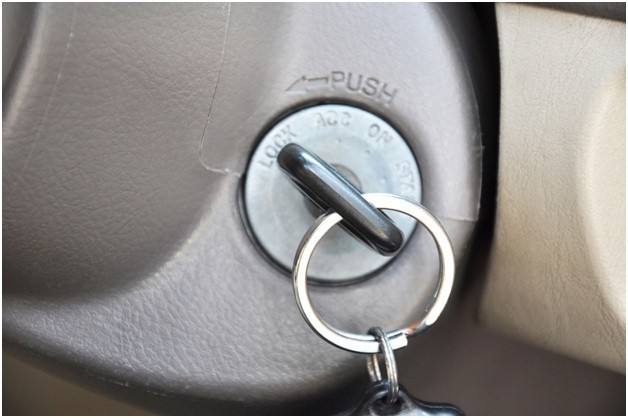You’ve probably already heard about the recent trouble GM has gotten into—even if you’re not a news junkie, it would be hard to avoid all the headlines and reports about the car manufacturer’s defective ignition switches and the bungled recall associated with the issue. As horrifying and baffling as GM’s handling of the situation has been, it does provide a perfect example of how companies should not handle a defective product. Hopefully other large corporations will learn from GM’s mistakes.
First, a recap for those who are fuzzy on the details of the GM debacle: the manufacturer issued the first of their official recalls back in February, informing drivers of 2005-2007 Chevrolet Cobalts and 2007 Pontiac G5s that their vehicles had a faulty ignition switch. They reported that the ignition switch could easily be jostled from its running position to “Off” or “Accessory,” causing the vehicle to lose power steering, braking, and airbag deployment capabilities. They also acknowledged that the defective ignition switch had already been responsible for at least 31 crashes and 13 deaths, but many safety officials believe the death toll is actually much higher.
Things haven’t gotten much better for GM in the past few months. Since February, they have issued 30 separate recalls that encompass nearly 14 million cars in the US alone, close to 20 times more than the number of GM vehicles recalled in 2013. The Justice Department is also performing a criminal investigation to determine just how much GM knew about its defective products before they officially issued their first recall.
There are many ways that GM has mishandled this situation and endangered drivers as a result. Let’s look at a few of the major issues.
A Look at GM’s Negligence
Between bankruptcy, covered up defects, and a failure to investigate GM car-related deaths, the large automaker has been troubled for well over a decade. Here are just a few of the ways GM has demonstrated its negligence:
Failure to report a defect as soon as it was detected. It would be tragic enough if 13 or more people had lost their lives due to a defect that GM didn’t know about, but documents from pre-production testing of the Saturn Ion reveal that GM knew about the faulty ignition switch as far back as 2001. That’s right – GM knew about the issue not just weeks or months before issuing a recall, but 13 whole years.
Failure to investigate the first ignition switch-related death. Back in 2005, 16-year-old Maryland resident Amber Rose lost her life after crashing her Chevrolet Cobalt into a tree. Her air bags did not deploy, and she died on impact. A federal investigation revealed that her ignition switch was turned to “Accessory” at the time of the crash, and investigators informed GM of this in 2007. However, GM chose to blatantly ignore this red flag and did not admit that Ms. Rose’s death could have been caused by the faulty ignition switch until this year.
Avoiding responsibility. GM’s general evasiveness when it comes to answering questions about their recalls has drawn the public’s ire. In a video apology, new GM CEO Mary Barra simply said that “something went very wrong” in the handling of the crisis.
Shuffling between Old GM and New GM. After GM filed for bankruptcy in 2011, the US Treasury purchased the bulk of GM’s assets and the government took ownership, drastically shuffling personnel and rearranging the organization’s structure. Since the ignition switch issue first came to light during the reign of “Old GM,” the current company officials have been trying to avoid blame by saying that their defective products were created by a now essentially nonexistent company.
Telling owners of recalled vehicles it’s still safe to drive. After issuing their ignition switch recall, GM told owners of recalled vehicles that it was still safe for them to drive as long as they didn’t attach anything heavy, like a keychain, to their car keys. At least one GM car owner has taken legal action based on this announcement and is asking a federal judge in Texas to make GM issue another warning saying that the recalled vehicles are unsafe to drive.
Doing too little, too late. GM has begun manufacturing replacement ignition switches and recently started a Speak Up for Safety campaign that encourages company employees to report any potential issues that they discover in a GM vehicle. While this is a step in the right direction, this delayed response pales in comparison to the deaths caused by GM’s negligence.
Accident Victims and Outraged Public Respond to GM
In addition to the current criminal investigation, which may take years to resolve, GM is now facing an astounding 79 lawsuits totaling $10 billion. A board of judges is trying to decide whether to keep the lawsuits separate or combine them into one civil suit. GM is scrambling to overhaul its legal department as the tide of lawsuits rolls in, but it’s not looking good for the beleaguered car company. Even if they somehow managed to win the suits filed against them, they’ll face steep payouts to accident victims’ families if the federal criminal investigation finds them guilty.
As tragic as this whole situation is for accident victims, their families, and any drivers who have been endangered by the faulty ignition switch, the GM scandal should serve as an important reminder to large manufacturers. Consumers will hold corporations responsible for releasing defective and dangerous products, and attempting to hide a potential hazard is only going to make the situation more devastating.
We, as consumers, need to continue holding manufacturers accountable for any negligence on their part. If you’ve been injured in a car accident as a result of a manufacturer defect, you should contact an auto accident attorney who has a business background and experience going up against large corporations. Companies need to recognize that they have a duty of care to their customers, and they can’t cover up dangerous design flaws just to protect their bottom line.
About the Author:
Andrew Winston is a partner at the personal injury law firm of The Law Office of Andrew Winston. He has been recognized for excellence in the representation of injured clients by admission to the Million Dollar Advocates Forum, is AV Rated by the Martindale-Hubbell Law Directory, and was recently voted by his peers as a Florida “SuperLawyer”-an honor reserved for the top 5% of lawyers in the state-and to Florida Trend’s “Legal Elite.”
 Learn How to Identify a Brain Injury and Get Proper Treatment
Learn How to Identify a Brain Injury and Get Proper Treatment 


















